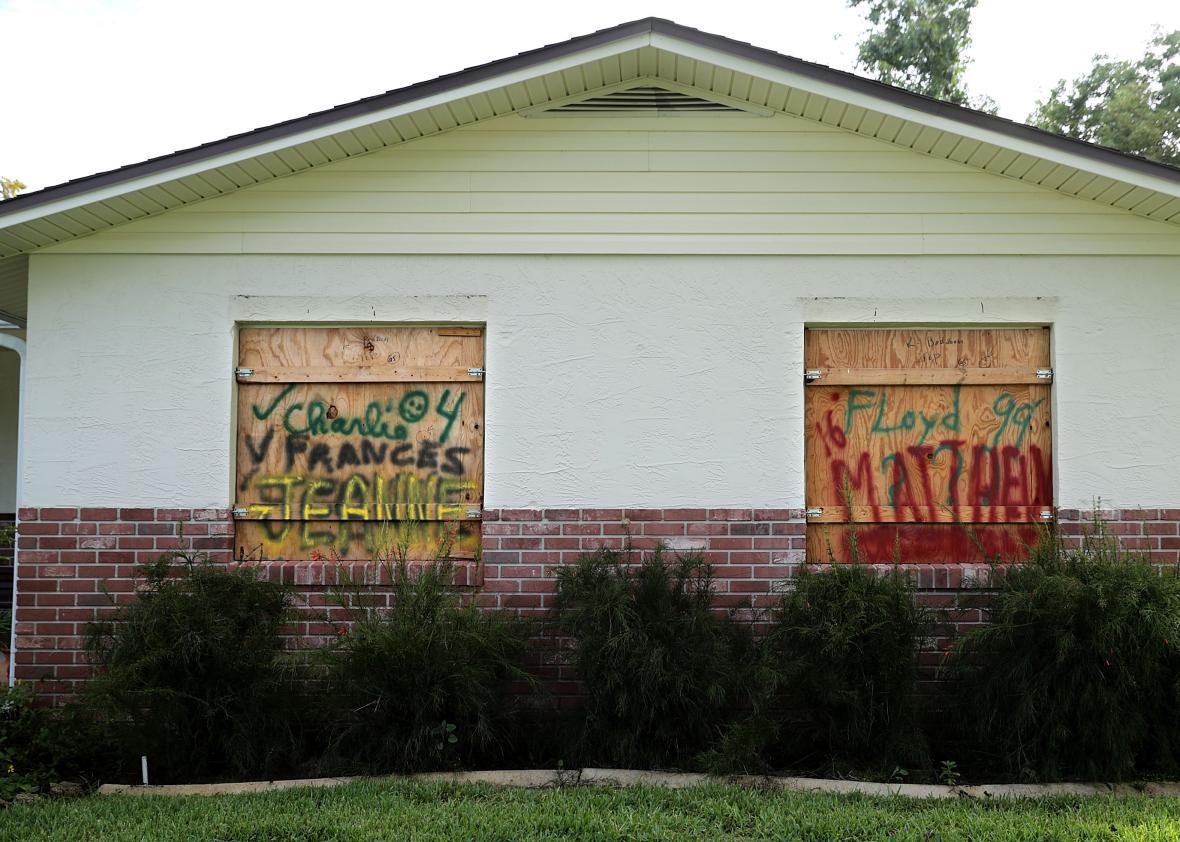Roughly 5.6 million people in Florida have been ordered to evacuate as Irma approaches, jamming the state’s highways in their exodus. Those traffic jams have disuaded many potential evacuees from moving out, as Darlena Cunha writes in the Washington Post. “There are no exits on these roads for scores of miles at a time,” she writes. “Once you get on a Florida highway, you are not getting off. You’re stuck.” It’s ultimately safer to be sheltered in place somewhere than it is to be in a traffic jam once a hurricane hits, which is why Florida governor Rick Scott told residents this morning that those who haven’t left by noon should stay. Those who’ve heeded his advice join those who are simply too stubborn to leave and those who simply can’t—government and private-sector workers who’ve been ordered to stay, the old and the sick, the poor and others who don’t have a particular place to flee to now, and the homeless who never have.
Essential government personnel in Naples are among those in the first category, as the Naples Daily News’ Joseph Cranney and Ryan Mills report:
In addition to police and firefighters, officials from all of the city’s departments — including utilities, streets, building, finance and purchasing — are asked to keep City Hall running, even as the rest of Naples’ residents are taking shelter. For City Manager Bill Moss, that’s a necessary part of government.
“Our responsibility is to protect life and property, to prepare for this storm, and to be ready to begin post-recovery operations immediately after passage of the storm,” Moss said. “To do so, we need employees, equipment and sufficient supplies.”
Moss goes on to say he intends to fire a community services worker who walked off the job to evacuate. The Washington Post’s Danielle Paquette notes that this is legal not only for government employees, but also many private-sector workers. “In the United States, there is no such thing as disaster leave,” she writes. “Union contracts protect some workers, and mandatory evacuation orders make it illegal for people to stay directly in a hurricane’s path, once that warning has been given. The Federal Occupational Safety and Health Administration’s laws, meanwhile, offer some protection. Employment lawyers assert most workers have a strong case for declining to work in an unsafe environment.”
Many hospitals in Irma’s path are sheltering remaining patients who were not among the thousands moved out over the past few days, including new arrivals who’ve injured themselves in the rush to fortify houses. “What we’ve seen lately is people trying to board up their houses, getting on the roof,” Jackson South Medical Center’s Esther Segura told the Miami Herald. “So before the storm hits, we have some traumas from people trying to prepare their homes, falling off ladders.” Other hospitals have shut down entirely or are planning to limit access in the coming days.
Poor Floridians in flimsy homes and trailers are both less likely to have a destination to evacuate to and more likely to be among the casualties when the storm finally hits. There are 54,000 mobile homes in South Florida, according to the Herald. All are at risk of being obliterated by Category 4 force winds. Nevertheless, some trailer residents are staying. From the Herald:
Felius Gerveus, 60, said he wasn’t sure if his Little River trailer would still be standing when he gets back. He plans to shelter at a North Miami church. “I don’t got nobody to help,” Gerveus said. “Only God. You have to survive out here by yourself.”
[…]Irma Roldan (yes, Irma) has covered her windows with unpainted pocket fence posts. Moses Muniz has a circle saw out, cutting pieces of plywood and nailing them over his windows. He’s puffing what’s left of a Newport Gold. But [Harriet] Blackman, 85, says she may stay put, simply because she doesn’t know where to go. She’s worries about her dog, a 10-year-old Yorkie named Jaden. And staying in a shelter is out, she says, because her body is too broken to sleep on the ground.
The homeless on the streets of Miami, meanwhile, are being involuntarily detained. Police are invoking the Baker Act, a state law that allows the police to forcibly institutionalize, for up to 72 hours without a court’s approval, those deemed to be a danger to others or themselves—in this case, by being in the path of an oncoming storm. The Associated Press’ Adriana Gomez Licon reports that 70 people were taken off the streets and driven to shelters on Friday, with an estimated 600 more homeless people remaining outside and exposed in the city.
*Correction, Sept. 12, 2017: This post originally misstated that Florida evacuees had been told to leave the state.
